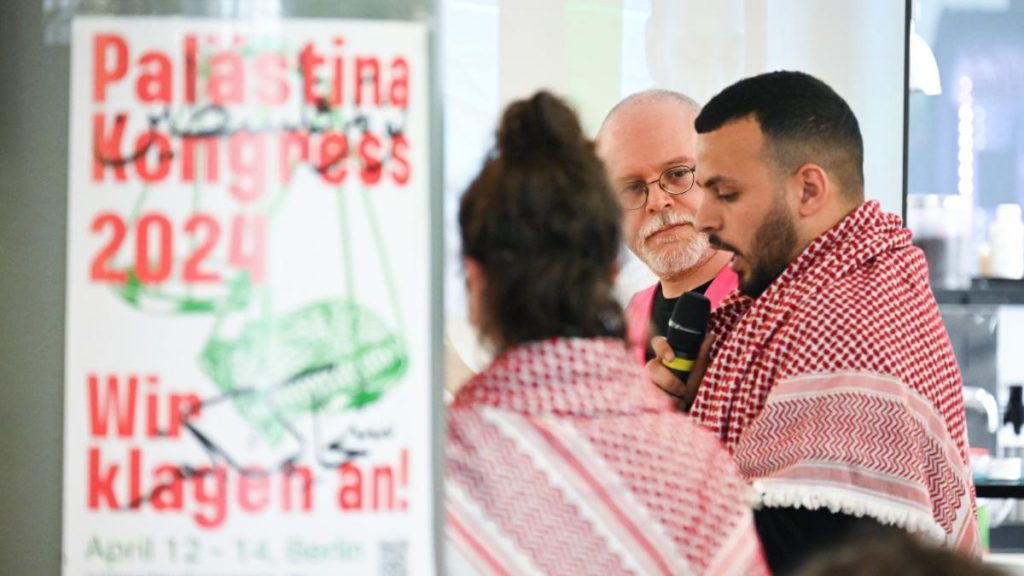A controversial “Palestine Congress” in Berlin was disrupted by the police after a speaker, Salman Abu Sitta, who had a public speaking ban due to anti-Israel and anti-Semitic remarks, was connected via livestream. The event, which had around 250 participants, was abruptly ended by the police, who cited concerns about the repetition of hate speech. The organizers initially threatened legal action against the interruption, but the ban on the speaker was extended for the following days as well.
The participants of the congress, themed “We accuse,” reacted loudly to the interruption, expressing their displeasure. The event, which began on Friday and was supposed to last until Sunday, featured calls for an immediate end to support for Israel and a comprehensive military embargo against the country. The congress had faced criticism from various political figures even before it began, with Berlin’s Governing Mayor Kai Wegner labeling it as intolerable and unacceptable for Berlin, which does not tolerate anti-Semitism, hatred, and incitement against Jews.
The police had been preparing for a large-scale operation, deploying around 900 officers on Friday and a total of 2500 over the weekend. The exact location of the congress was kept secret until the last minute for security reasons. The organizers accused Israel of apartheid, colonialism, and genocide in the Gaza Strip, with calls for Germany to stop providing weapons to Israel. Concerns about possible criminal incitement to violence were raised by a spokesperson from the SPD parliamentary group in the Abgeordnetenhaus.
The police had pledged to intervene swiftly in case of any suspicion of criminal activity during the congress. Inner Senator Iris Spranger and Justice Senator also emphasized that while peaceful protests about the situation in Gaza were allowed, any participation in hatred and incitement against Israel would be subject to legal consequences. The event had been organized by groups associated with the anti-Israel boycott movement and other anti-Israel groups like the Group Workers’ Power, Revolution, and the United Palestinian National Committee.
Criticism and opposition to the congress had been widespread since its announcement, with a bipartisan “Alliance against Anti-Semitic Terror” mobilizing against the event and calling for resistance. The concerns regarding the potential for hate speech and anti-Semitic content at the congress underscored the need for vigilance against such ideologies and the importance of upholding the values of tolerance and peaceful coexistence in society.


